Who is the father of history is a question, all of us have wondered as children. The scope of history is infinite and in such a scenario, to describe a particular person as the father of history would appear illogical at the outset, but it was the first-century Roman orator – Cicero, who bestowed this honor on Herodotus the Greek Historian, who was born in 484 BC.
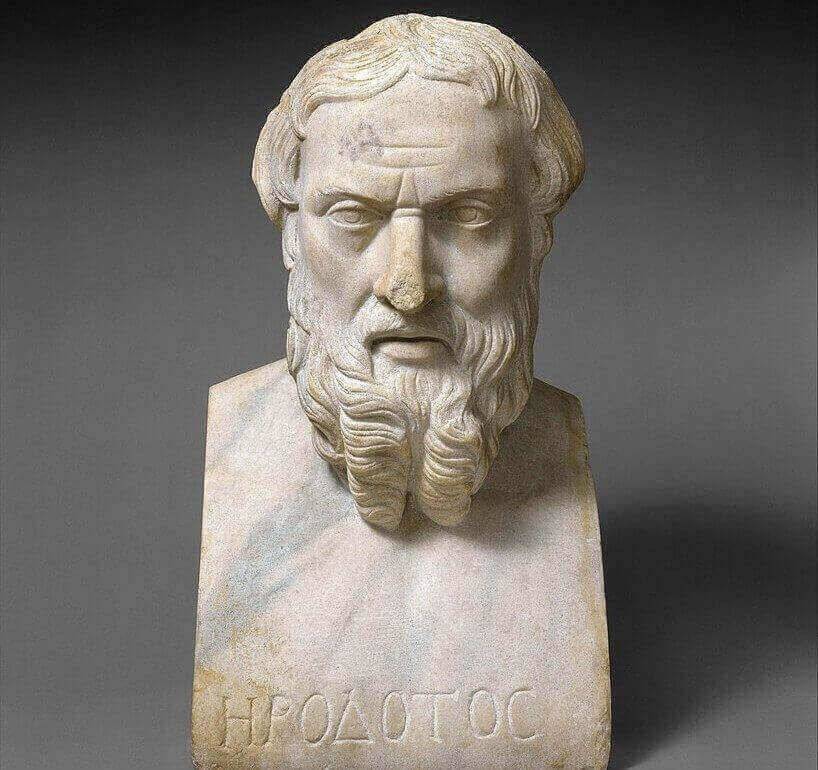
Although the stories reported by Herodotus had certainly its share of flaws, but his methods revolutionized the way the past was recorded. Before Herodotus the past was recorded, simply as a collection of different events and facts, without any attempt to explain their causes or trying to understand them logically. Most of the time, they were accepted just on their face value, as a will of gods.
Herodotus would change the way history was written forever. He tried to put forward a deeper logical reason for explaining the way things happened. For this, he quite often tried to get the correct version of a story from two different perspectives, which changed bland facts into a more interesting format, thus creating the new subject of history.
Herodotus the father of history, was born around 484 BC in the Greek city of Halicarnassus, present in the southwestern coast of Asia Minor, which corresponds to the modern Turkish city of Bodrum. Although Herodotus himself was a Greek; Halicarnassus at the time was a province under the Persian empire, and Herodotus grew up at a time when all events around him were influenced by Greco – Persian Wars, which lasted from 499 BC to 449 BC.
Herodotus the historian’s parents – Lyxes and Dryo, were rich and influential people who ensured that Herodotus could have one of the finest educations that were possible at the time. This made him quite well-read, which along with his frequent habit of traveling would enable him to pen down the knowledge about the different stories & tales of different lands, that he learned during his journeys later on in life.
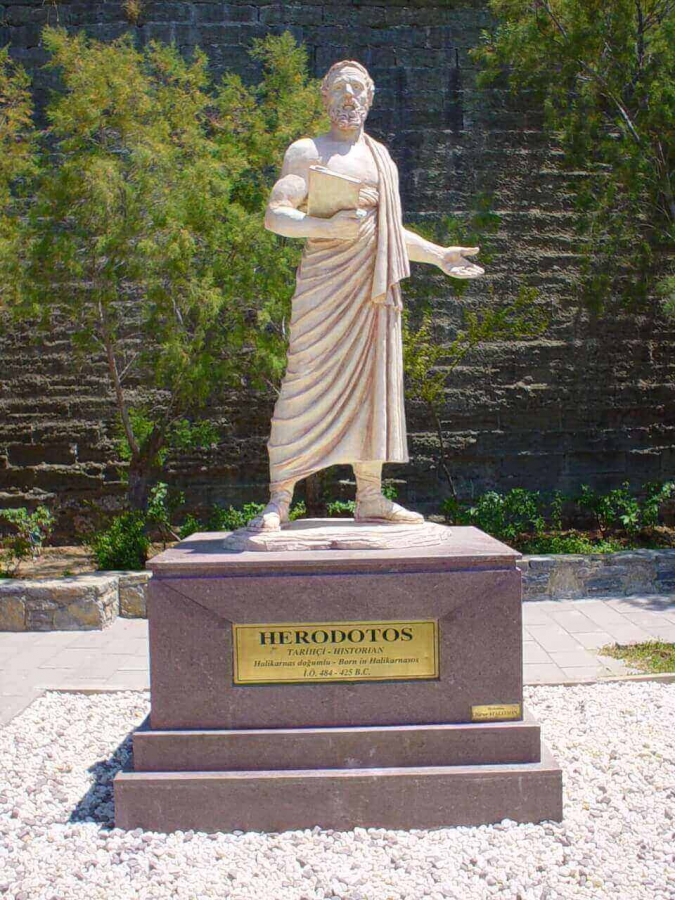
The tyrant Lygdamis (grandson of the famous Artemisia I of Caria) ruled over Halicarnassus at the time. Herodotus’s family had opposed Lygdamis and in the ensuing confrontation, Lygdamis had executed Herodotus’s uncle – Panyassis, a famous poet of the time. The family was exiled from Halicarnassus, and young Herodotus along with his family landed on the island of Samos. According to some sources - It was while living in Samos, that Herodotus would learn the Ionian dialect in which he would later write his most famous creation – The Histories.
The exile of Herodotus from Halicarnassus would be a turning point in the life of Herodotus, The Father of History. In the coming years, he would spend a great part of his life, traveling from one place to another, learning about different tales of different people he encountered.
His journeys took him to Egypt, Palestine, Syria, all the city-states of the ancient Greek world and other east Mediterranean areas. He would not stay in the same place for very long and would constantly move from one place to another, collecting all kinds of information about the different places and people he came across.
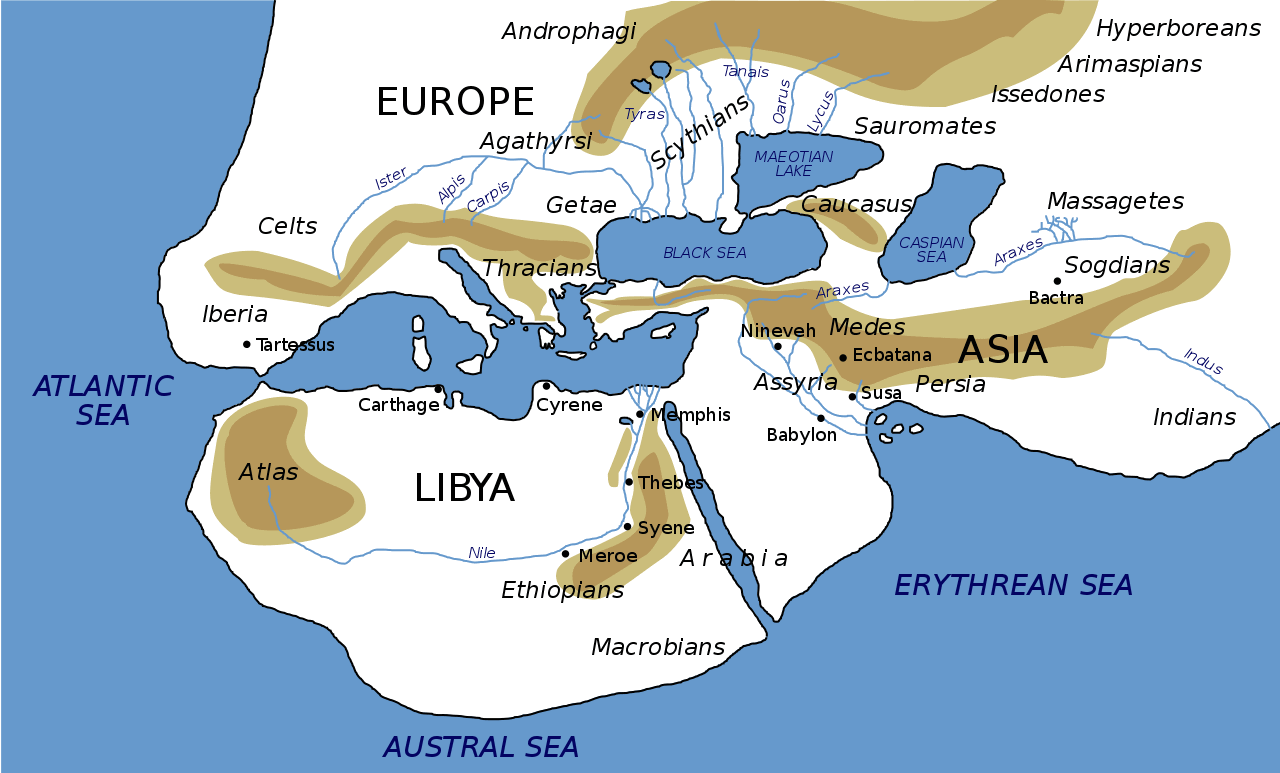
During these travel he would note down the incidences that occurred in the collective past of the people he encountered, their legends and myths and tried to correlate them with his own personal observations, thus trying to co-ordinate different information & put them together in a systemic manner, which he called autopsies or his personal inquiries.
The important creation, for which Herodotus spent his whole life and would later give him the designation & honor of being called The Father of History, is – The Histories. The Histories were a detailed description of the Greco – Persian wars, that was perhaps the most important event during the time Herodotus lived and grew up. Herodotus’s histories were based on events that influenced all spheres of life of the people living in the areas, where Herodotus moved around.
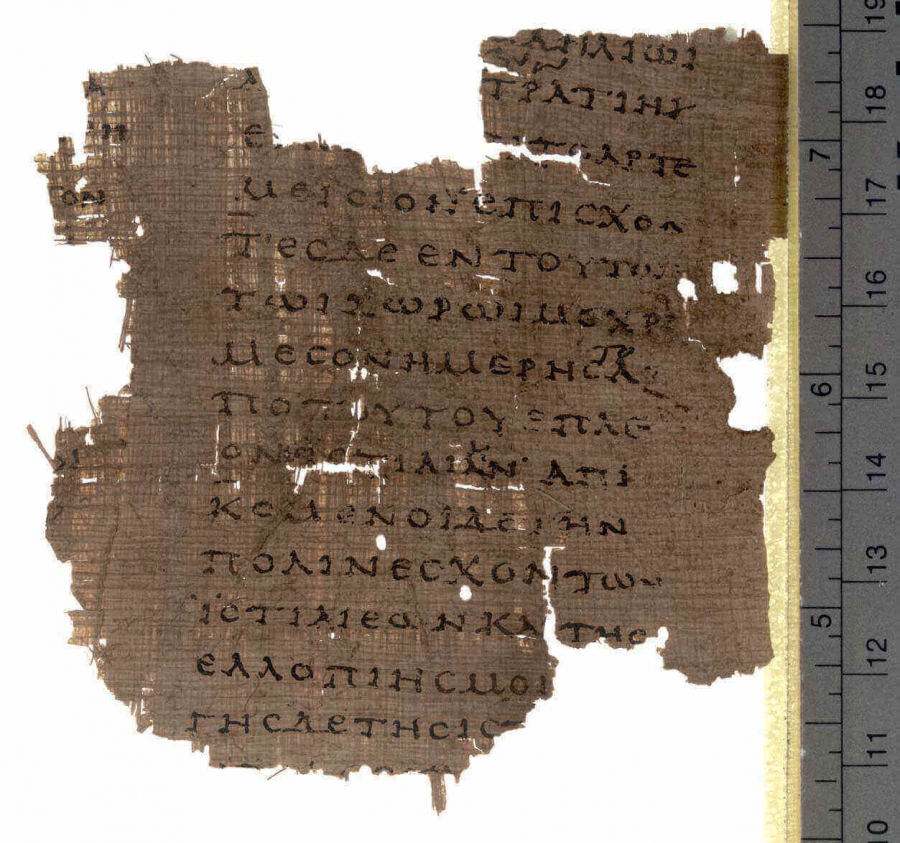
Herodotus had described in detail the beginning of the Greco Persian war in 499 BC after Athens helped some Greeks, rebel against the Persian rule. The next great turning point came in 490 BC when the Persian emperor – Darius sent his army to invade Athens, for punishing them for what he considered was treachery. However, at the Battle of Marathon, the forces of Athens won an unexpected victory.
The Persians were not ones to give up so easily and they returned 10 years later in 480 BC under the rule of Emperor Xerxes, the son of the previous emperor Darius. Herodotus also described how this huge force of Persians, was challenged by a small group of Spartan brave hearts and their allies in what would be later known as The Battle of Thermopylae. Here the last stand put up by King Leonidas of Sparta & his Spartans, who caused great destruction & loss to the Persian army before the Spartans were martyred; also figures in detail in the description of Herodotus Histories.
Some weeks later in Battle of Salamis in a naval battle fought between an alliance of different city-states led by Athenian general Themistocles and Persian forces under Emperor Xerxes, ended in a great victory for the numerically outnumbered Greeks. Xerxes would later retreat back to Asia, leaving behind his generals to continue the Greek expedition.
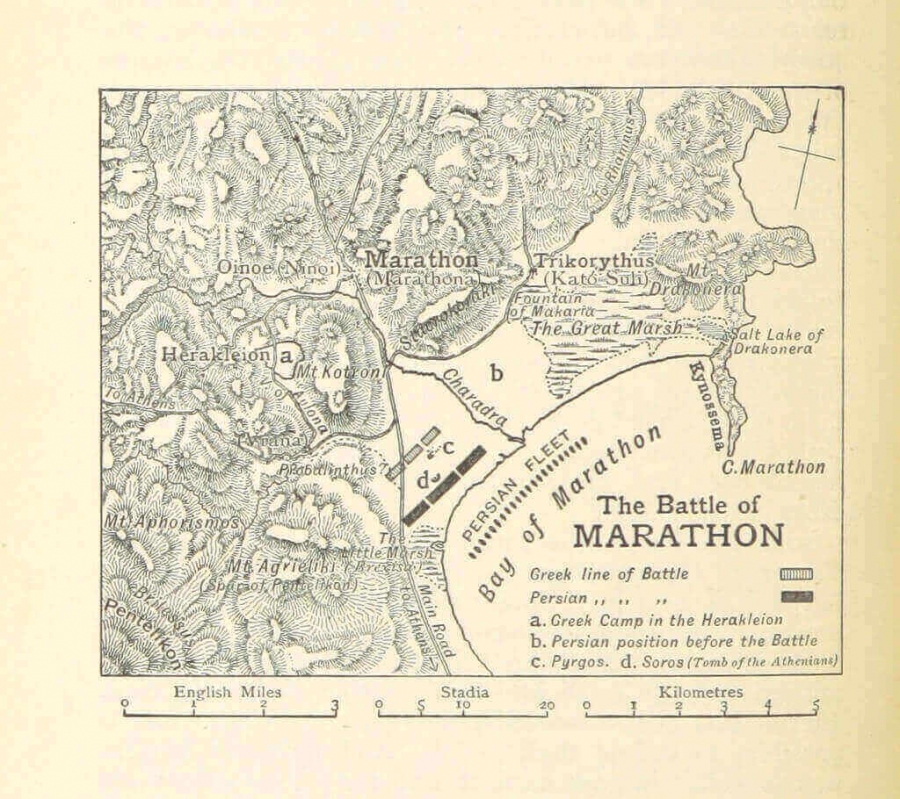
Herodotus Histories not just mentions the different facts that occurred during the confrontation of the 2 sides, but also tried to find out the cause behind the victory of Greeks, by collecting stories from all around the Mediterranean. He recorded the triumphs and disasters faced by both Greeks & non-Greeks before they could be lost to antiquity.
Besides the stories of confrontation between the Greeks and Persians, Herodotus Histories had a description of many other subjects too. Besides the serious description of discussion that occurred in Persian courts, trifling matters like how to catch a crocodile; to the downright ridiculous description of Egyptian flying snakes, are also described in the text.
His description and analysis were based on – Autopsy, a Greek word which meant “seeing for oneself”. He divided his observations and findings on different sources. Some of these were – eye witness accounts (Opsis), hearsay (Akoe), tradition (Ta Legomena) & finally reason (Gnome).
Herodotus Histories also became very well known, which later made Herodotus the father of history, because he was well aware of how to leverage the knowledge which he had earned, in the correct way. When Herodotus was not traveling, he was spending his time in Athens, telling people all the things that he had learned.
As publishing which is done in the modern world was not available at the time, he published his work – the Histories, in a different way. This was by telling his observations in the form of a well-formatted story, reading them in public places of Athens, where a voluminous crowd would gather to hear him. Herodotus’s Histories was originally written in 28 sections, each of which took almost 4 hours to be read to the public.
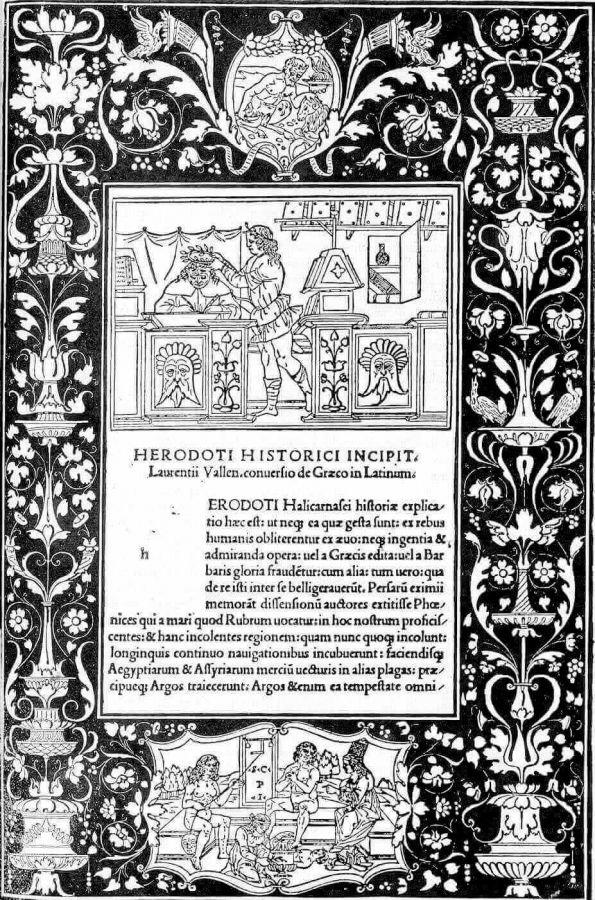
He also received financial incentives from officials for his endeavors. In 445 B.C. he won a prize of 10 talents for his efforts of spreading knowledge & wisdom through his popular widespread discourse. As the influence of the Greek world gradually increased over time, the writings of Herodotus & the concept of history, as envisioned by him spread across the Mediterranean.
Herodotus Histories was divided into 9 books by editors after the death of Herodotus. The first 5 books focus on the states that the Persian forces conquered; and describing the customs, the lifestyle of the people & the geography of the area. It also attempts to explain the probable reasons behind the rise and fall of the Persian empire. The remaining 4 books describe the battle & confrontation of Greeks & Persians in detail. These include the invasion of Greece by Persian emperors – Darius & his son – Xerxes and the final victory of the Greek forces in battles that occurred in 480 BC and 479 BC.
Herodotus, the Greek Historian in spite of his success, faced criticism from many sections of scholars and society, both during his life and after his death also. Not all of these originated from jealousy against a successful erudite man, but some had roots in genuine concern or ignorance of the period. Some of the main reasons for these were –
Some incidences from Herodotus’s The Histories and other occurrence described regarding the life of the father of history does point to the same. The beginning of the Histories not just mentions the purpose of writing behind the text, but also puts special emphasis on the author. It begins –
“Here is the result of an inquiry carried out by Herodotus of Halicarnassus. These have been written with the hope that it will prevent people from forgetting with time, the fame & great deeds, done by both Greeks & non-Greeks and their achievements, while understanding the cause behind their confrontation”. It was obvious that Herodotus believed that he was doing was a very important job and he wanted the people who came later should remember that.
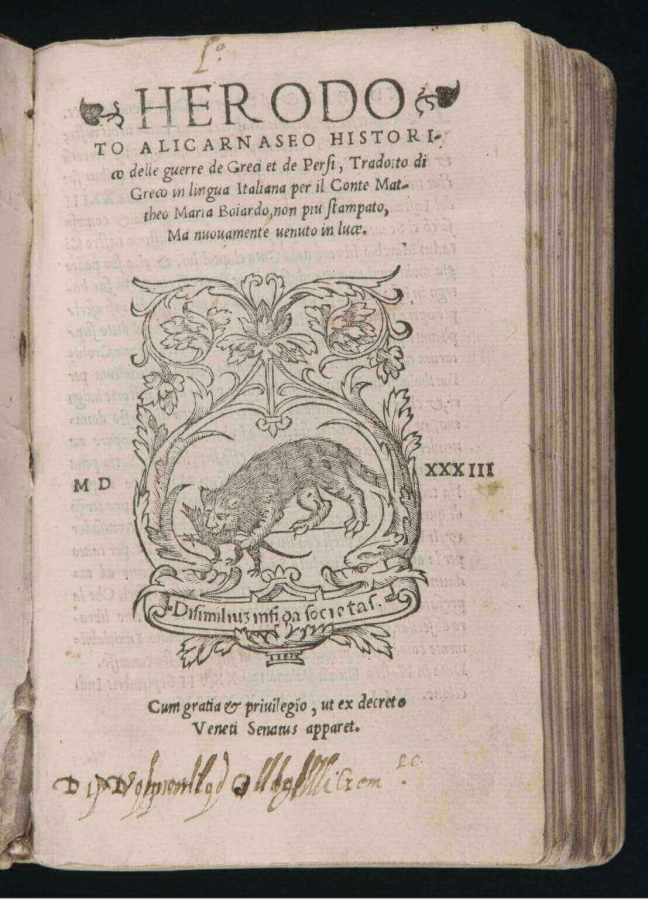
Like Herodotus & his shade – This is a proverb which means a person who waits for the right condition misses an opportunity. This proverb has its origin in a story, where the father of history, who was preparing to read Herodotus’s The Histories in front of a crowd, decided to wait till there was a sufficient cloud in the sky to provide him ample shade in the platform. However, he waited so long that the crowd waiting to hear him lost their patience and left the venue. This story has many versions, but if true showed how much importance, the father of history attached to himself.
Of all the criticism leveled against Herodotus, perhaps the strongest was that fact described by him were not true but simply false fabrications. He has been accused of spreading false information and sometimes spectacular lies to make his stories more appealing to the public.
Herodotus the historian was also accused of passing off stories that he had heard from other people, as his own personal experience, without even checking the accuracy of the facts. For all these reasons, Plutarch – the Greek biographer and essayist who came much after him, called him the father of lies.
He was known to favor Greeks over Persians. Even among the Greeks, he was accused of being more biased to some compared to others. This created objection to his description of the Battle of Marathon, where he credited certain Greek people & their families, as being more responsible than others for contributing to victory against the Persians.
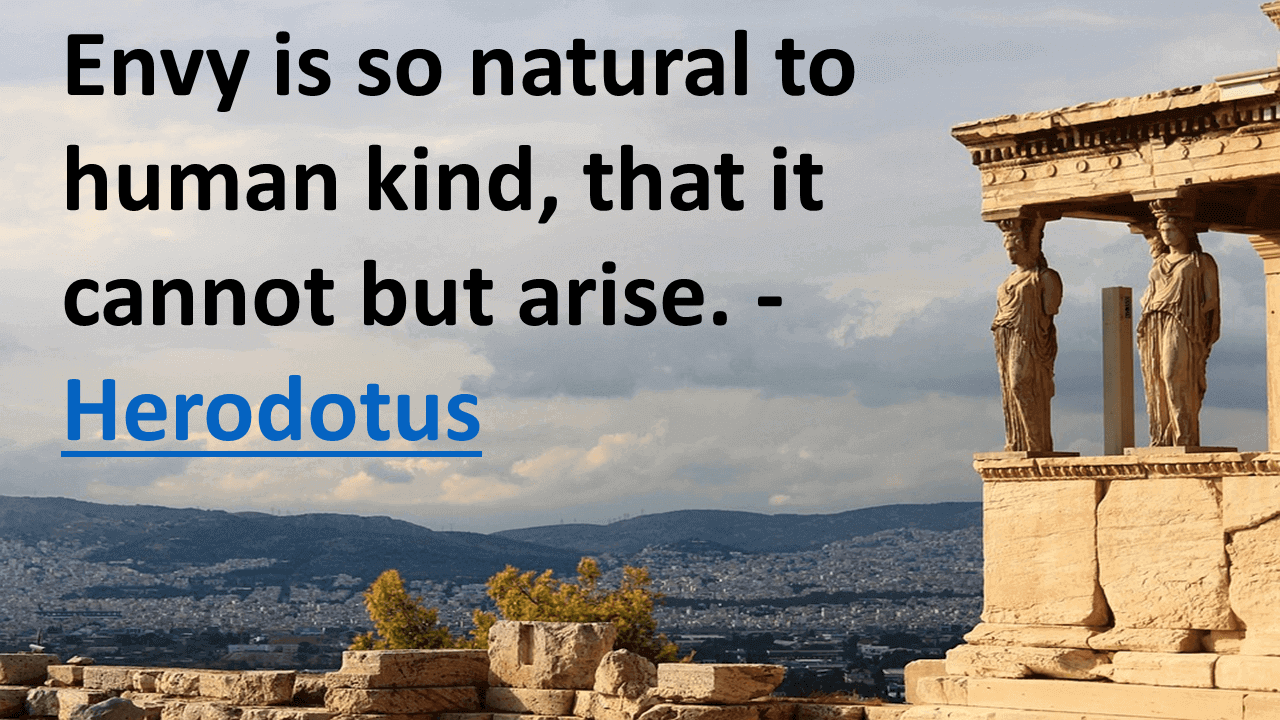
His description of the ancient city of Babylon is another subject that has raised a lot of criticism and controversies. The later descriptions of the city, as well as archaeological pieces of evidence, have clearly shown that the city was much smaller than what Herodotus had described. This just proves that the father of history’s report about the city was based on what he had heard from others, but he chose to pass off the description as his own personal experience.
Finally, Herodotus’s The Histories also suffers from another handicap. Many stories described in this ancient text have no relation to the main plot of Greco – Persian wars. This can create confusion in the mind of the readers who are not well versed in the writing style of Herodotus.
In the modern world, it is believed that the majority of observations made by Herodotus were accurate. Many so-called inaccuracies were due to misinterpretation of sentences translated to him, by his interpreters. One of the most famous examples of this is where the father of history, describes fox sized ants in Persia, who spread gold dust while digging their mounds.
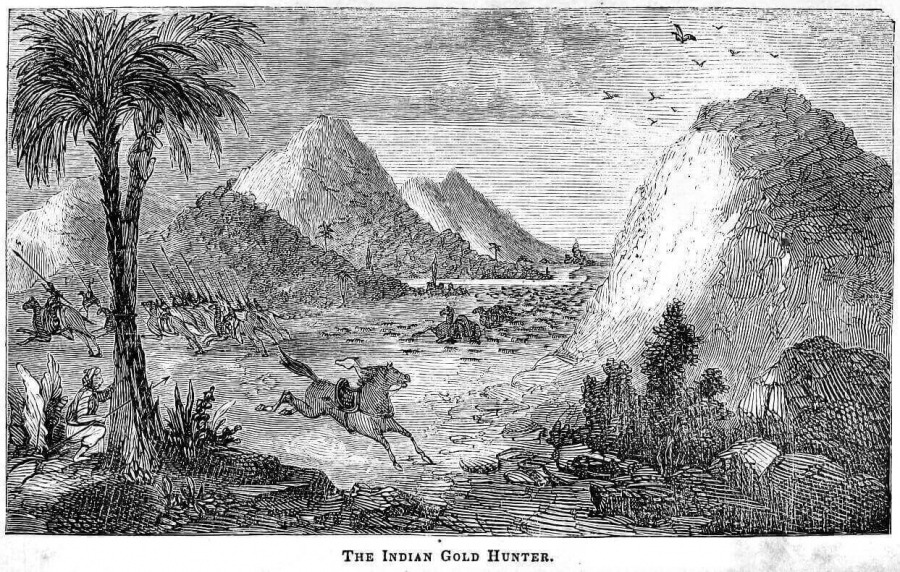
Recent modern-day studies have proved that fox sized marmot (large squirrels of the genus Marmota) in the Himalayas indeed does spread gold dust when digging. As the Persian word for mountain ant was very close to the word for Marmot, so it was obvious that Herodotus was not making up stories, but just misunderstood the translation, for which he relied on translators. The same logic may have been responsible for misinterpretation of many other facts, as mentioned by the father of history- a mistake which he committed unknowingly.
Herodotus’s interpretation of events that shaped life all-around around him was also revolutionary in another way. The father of history never tried to portray a divine role behind the causative factors that changed the lives of people all around him, as predecessors before him had attempted to do. Herodotus always described the events as a logical outcome of human ambitions & aspirations.
In spite of his shortcomings, Herodotus – the father of history, was a very popular figure in ancient Greece. This can be judged from the factor that many different cities like – Athens & Thurii, claimed that Herodotus breathed his last in their city. For this reason, the site of his funeral & grave is found in more than one place.
As the first historian of the world, Herodotus’s methods were far from perfect. Many sources mention that he was more favorable to the Greeks than the Persians. He was also very easily convinced by ridiculous stories, told to him by others which could not have been true in any way. This gave rise to mistakes in his narrations. But even in modern world historians have been known to be partial towards some race or people & mention facts, that are not based on solid evidence.

In spite of these handicaps, the first historian of the world started writing and mentioning past events in a totally new style, which would have far-reaching consequences. Herodotus’s stories made people visualize the events more clearly in their minds, often helping them to analyze the events more accurately. In spite of various criticism to Herodotus Histories, the father of history will always be remembered as the person who changed the dull collection of facts, that was used for describing the past, to a fascinating new method of telling a story, that gave rise to a new subject – History, which continues to thrill & guide us to this day.
Please visit us read about: Female Freedom Fighters of India